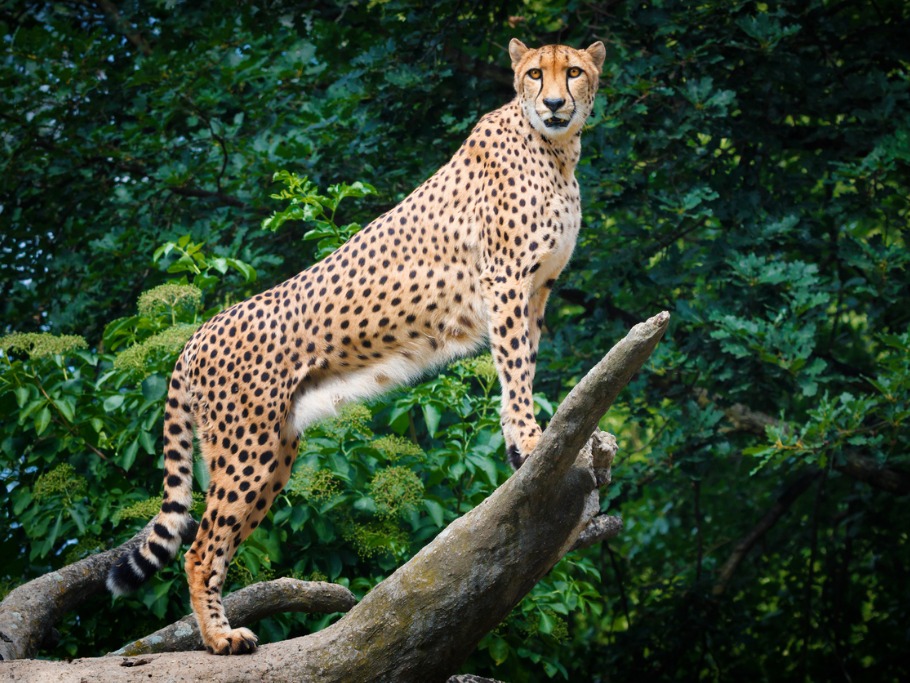
SC concerned over rising cheetah deaths, says it is does not present a 'good picture'

Pointing out that the death of eight cheetahs in the Kuno National Park (KNP) in less than one year doesn’t present a ‘good picture’, the Supreme Court asked the Centre to not make it a ‘prestige issue’ and explore the possibility of shifting the animals to different sanctuaries.
Under Project Cheetah, a total of 20 radio-collared animals were imported from Namibia and South Africa to the KNP and later four cubs were born from Namibian cheetah Jwala. Out of these 24 feline, eight including three cubs have died.
On Thursday (July 20), a bench of Justices BR Gavai, JB Pardiwala and Prashant Kumar Mishra, while voicing concern over the deaths of the feline, asked the Centre to file a detailed affidavit explaining the reasons and remedial measures taken.
“What is the problem? Is the climate not suited or is there anything else. Eight deaths have happened out of 20 cheetahs. Last week there were two deaths. Why don’t you explore the possibility of transferring them to different sanctuaries? Why are you making it a prestige issue?”
Further the bench told additional solicitor general Aishwarya Bhati, representing the centre, “Please take some positive steps. You should look for possibilities of transferring them to other sanctuaries irrespective of whatever state or government is instead of putting them at one place.”
Also read: 2 Kuno cheetahs died of septicemia caused by radio collars: S African expert
Centre to submit detailed affidavit
Bhati said the Centre was about to file an affidavit explaining the reasons for the death of the animals and sought an opportunity to submit a detailed affidavit describing the circumstances surrounding each cheetah death.
The government law officer also said the authorities are exploring all possibilities including transferring them to other sanctuaries. “These eight deaths of cheetah are unfortunate but expected. There were several reasons behind these deaths,” the lawyer told the court.
She said it was a prestigious project for the country and authorities are taking all necessary steps to prevent more deaths.
Not a good picture
“If the project was so prestigious for the country then 40 per cent deaths of cheetah in less than a year does not present a good picture,” the bench said responding to Bhati’s assertions.
Senior advocate PC Sen presented some suggestions put forth by experts to prevent the cheetah deaths in KNP. The bench asked Sen to submit the suggestions to Bhati and asked her to file a response by July 28-29, and listed the matter for August 1.
On July 14, a male cheetah named Suraj, translocated from South Africa, died at KNP, taking the total number of cheetah deaths at the park in Sheopur district since March this year to eight. Another male cheetah, Tejas, brought to KNP from South Africa in February this year had died on July 11.
Besides the death of these two felines, six cheetahs, including three cubs born to Namibian cheetah Jwala, have died at the national park since March, in a setback to the reintroduction programme launched with much fanfare in September last year.
Also watch: Eighth cheetah dies | 4 questions on why cheetahs are dying in Kuno
KNP not sufficient
The top court had on May 18 expressed serious concern over the cheetah deaths at KNP and asked the Centre to rise above politics and consider shifting them to Rajasthan.
It had told the government that from reports of experts and articles, it appears that KNP is not sufficient to accomodate such a large number of cheetahd and the Union government may consider shifting the animals that went extinct from the country in 1947-48 to other sanctuaries.
The central government had told the court that along with the state government it had arranged for exchange visits, study tours, capacity building and training programmes with African countries as a result of which a significant number of forest officials and veterinarians have been trained and have experience of working with African wildlife species including cheetah.
Some of these officials and veterinarians are actively involved in implementation of Project Cheetah in India, it had said.
No need for expert committee
The top court is hearing an application filed by the Centre seeking direction from the court that it is no longer necessary for the National Tiger Conservation Authority (NTCA) to continue taking guidance and advice of the expert committee appointed by the apex court through an order dated January 28, 2020.
The top court had said the three-member panel comprising former director of wildlife protection M K Ranjit Sinh, chief conservator of forests, wildlife administration in Uttarakhand Dhananjai Mohan and DIG (Wildlife) of the inistry of Environment, Forest and Climate Change (MoEFCC) will guide the NTCA in the introduction of African cheetah in India.
On March 28, a day after the first death of cheetah at Kuno, the top court had sought details of experts in the Cheetah Task Force such as their qualification and experience.
The Centre had said in its application that according to the action plan for cheetah introduction in India, annually 8-14 big cats are required to be brought in from African countries at least for the next five years, and a memorandum of understanding to that effect has been signed by the government of India with Namibia and South Africa.
(With agency inputs)


